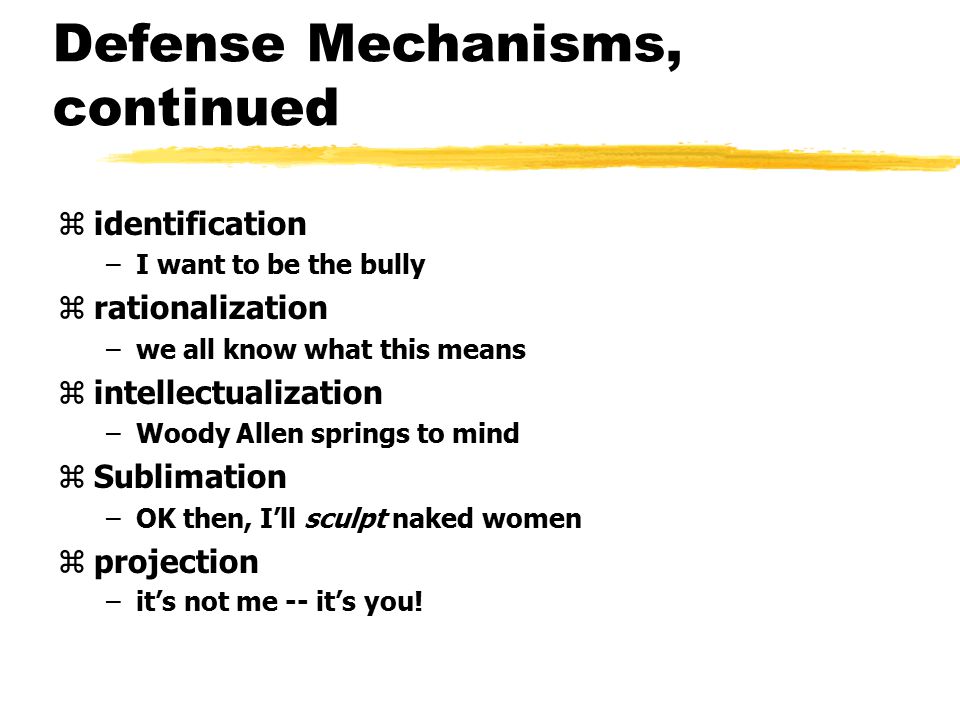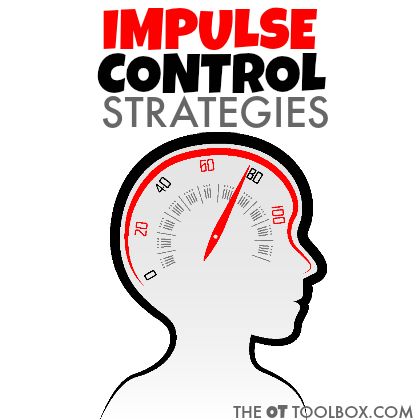Giving up control in a relationship
10 Ways to Let Go of Control in Your Marriage
Being a control freak in your marriage–or in your life, in general–means you don’t exactly make life easy for your spouse. That probably seems counterintuitive, doesn’t it?
We control because we want to make life feel easier, more predictable, or more secure. But it actually makes the people around us miserable–and it makes us miserable, too.
In last week’s post, we discussed the root of most controlling behavior–anxiety–and shared 6 signs that you might be a control freak. This week, we’re going to talk about 10 things you can do about it.
1. Learn how to delegate.
Delegating is tough for a control freak. We tend to think no one can do a job as well as we can–so we don’t even try to hand things off. But our workloads and obligations can quickly become an avalanche, and we find ourselves scrambling to regain some semblance of control amidst the chaos.
It’s important to understand that you don’t have to do everything alone. Learn to get comfortable with deferring to others, and even allowing others to lead from time to time.
2. Curb criticism.
Control freaks tend to think their way of doing things is the best way, and we can be highly critical when our spouse’s job (like folding laundry or mowing the lawn) doesn’t meet our expectations. Instead, check your expectations at the door, learn to curb criticism, and allow your spouse’s efforts to make you happy.
3. Consider others’ opinions.
When a control freak sets their opinion, they don’t want to budge. If we’re in a disagreement with our spouse, we’re obsessed with proving we’re right. That can blind us to our spouse’s point of view.
If you want to let go of control, try considering your spouse’s opinion more often. Acknowledge that your stance may not be the only right one.
4. Stop being pushy.
Pushy behavior is a control tactic we sometimes use to pressure our spouses into doing what we want, in our time frame. If you want to let go of control, let up on the pressure. Besides, your spouse will be more likely to go along with your ideas if you go along with some of theirs.
If you want to let go of control, let up on the pressure. Besides, your spouse will be more likely to go along with your ideas if you go along with some of theirs.
5. Loosen up on your schedule.
As control freaks, many of us schedule everything ahead of time, down to the detail. Our days are carefully structured, and we live and die by the calendar. And if something disrupts our carefully-laid plans, we overreact.
Letting go of control means loosening up on your schedule. Don’t rush your spouse, and learn to build more margin into your days to allow for the unexpected.
6. Learn to be more patient with others.
Everyone struggles with impatience from time to time, but control freaks have it down to an art. It’s important that we learn to be more patient with the people around us, especially our spouses, children, and families. Becoming a patient person will work wonders in all your relationships and make your life more satisfying overall.
7. Find ways to reduce your anxiety levels.

It’s difficult for a control freak to relax and take some downtime. We often find ourselves feeling guilty if we’re not “doing something productive” during every waking hour. If you tend to feel like you’ve wasted precious time you could have used to get more done, slow down. Learn how to relax. Your spouse will thank you!
8. Learn to go with the flow.
When someone or something disrupts the expected order of things, it’s not worth it to overreact. If events don’t go your way or if a person doesn’t do things the way you think they should, learn how to go with the flow. You’d be surprised how much stress relief you’ll experience once you let go.
9. Drop the perfectionism.
Control freaks often struggle with perfectionism to a fault. Some perfectionists report becoming so consumed by perfecting a project or endeavor that they lose sleep over it. It’s crucial to understand that trying to make everything flawless causes stress and anxiety. Alleviate it by learning to be satisfied with something that is complete and good, rather than perfect.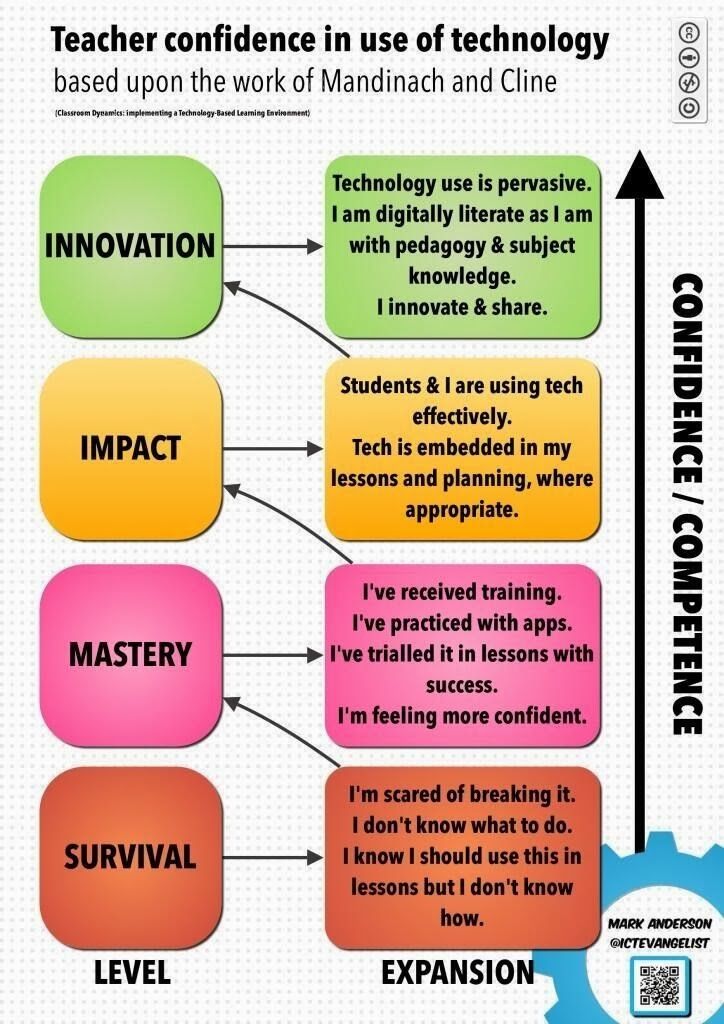
10. Count your blessings.
Every day, take some time to think about all the things you’re thankful for. Even better, tell your spouse all the ways you’re thankful for them. Remembering all the wonderful things in your life is a great way to re-center yourself when you’re feeling anxious and can help you keep day-to-day life in perspective.
Wrapping Up
If you find that you’re struggling with controlling tendencies, it’s important to address your underlying anxiety. If your anxiety is intense, chronic, or feels out of control, you may need to seek professional help from a licensed counselor or health practitioner.
My (Les’s) book, The Control Freak, takes a deep dive into the dynamics of controlling personalities. It contains many more tips for how to reign in your controlling behavior, so pick up your own copy to learn more.
How have you learned to overcome the urge to control? We would love to hear from you in the comments section.
Letting go of Control Improves the Love Flow
accepting others as they are
Have you ever noticed how with certain couples love and affection flow so naturally? Indeed, almost effortlessly.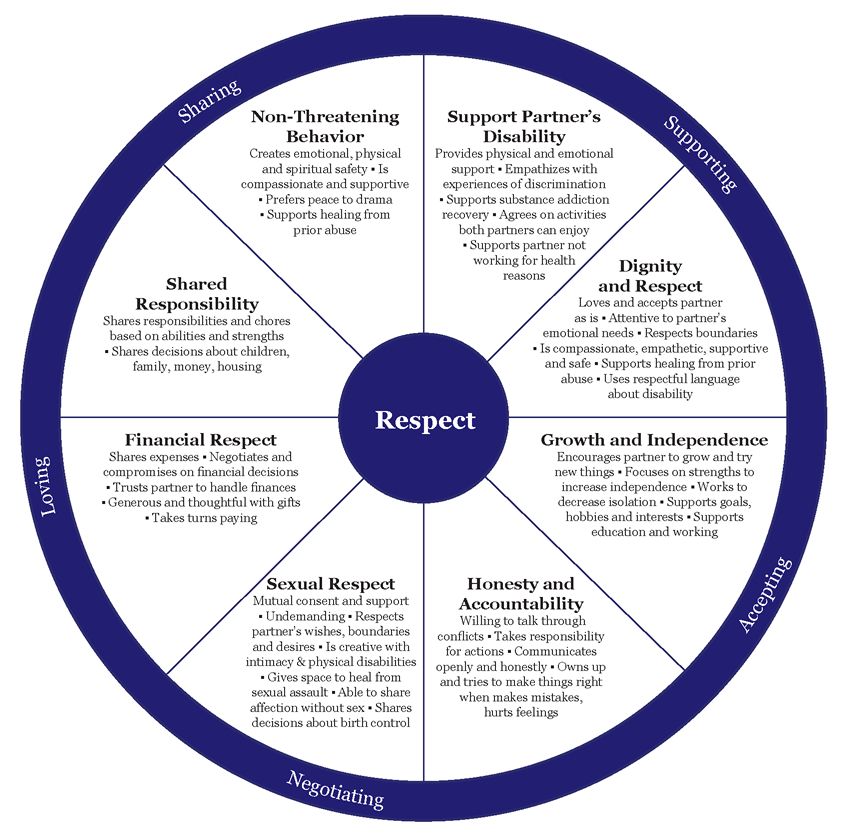 There is a good reason for this. These couples have learned to stop trying to control one another—and their relationship—and that leads to greater intimacy and a more vibrant love flow.
There is a good reason for this. These couples have learned to stop trying to control one another—and their relationship—and that leads to greater intimacy and a more vibrant love flow.
Conversely, you may have noticed that when couples press or “search” for love too intensely, they just can’t seem to find it. Indeed, in spite of (and usually because of) their best efforts they often push love away. There is a good reason for this as well: Love control obstructs the romantic flow. It forces the action, rather than allowing the love currents to unfold naturally so that people can relax and just be themselves—and offer their love and kindness without pressure or expectations.
Love Control Intimate relations are fertile grounds for controlling actions. Love control runs the gamut from unsolicited advice and opinions, to criticism and judgment, to unreasonable demands and expectations. When we behave in this way with our partners, our actions invariably breed resentment and diminish the love glow. People don’t like being told what to do or how to be in matters of the heart. Control stops the give-and-take of a relationship to unfold in its own time.
People don’t like being told what to do or how to be in matters of the heart. Control stops the give-and-take of a relationship to unfold in its own time.
Many of us have almost no awareness of how often we control and how many ways we try to do it—particularly in love and romance. Our very intensity and insecurity obscures awareness. For example, we are controlling when we repeat a suggestion or express our views more than once, when we prod and cajole, when we play the victim or martyr, and when we cry to churn a lover’s heart.
Are You a Love Controller?So, let’s find out if you are a love controller. Ask yourself the following:
*Do I usually feel I know what’s best for my partner?
*Am I often impatient with her?
*Do I try to solve his problems all the time?
*Am I quick to point out my partner’s shortcomings?
“Yes” answers to these questions indicate you are trying to control the relationship.
Losing Love ControlIf you wish to improve your love flow, you must be willing to give up trying to control your intimate relationships. Here are three effective decontrol tools that will help you do that.
Here are three effective decontrol tools that will help you do that.
1. Accept Your Loved One. Letting go love control begins by accepting your partner for whom, what, and how he or she is, rather than trying to “mold” him (or her) to suit your perceived needs. True acceptance removes the need to change or control another. The simple truth of the matter is that you are essentially powerless over changing traits in another that you dislike, and trying to do so only makes things worse. However, this does not mean that you have to like or condone these traits, but simply that you need to accept their “reality”.
Accepting the reality allows you to recognize the choices and options that you do have, even under very trying circumstances. Further, you are much better served by focusing on what you do have control over: yourself and your role in the relationship. For example, you have the power to reduce your expectations of your partner, to improve your own attitude–particularly to be more humble and not always assume your way is the “right” or “only” way—and to improve your own shortcomings.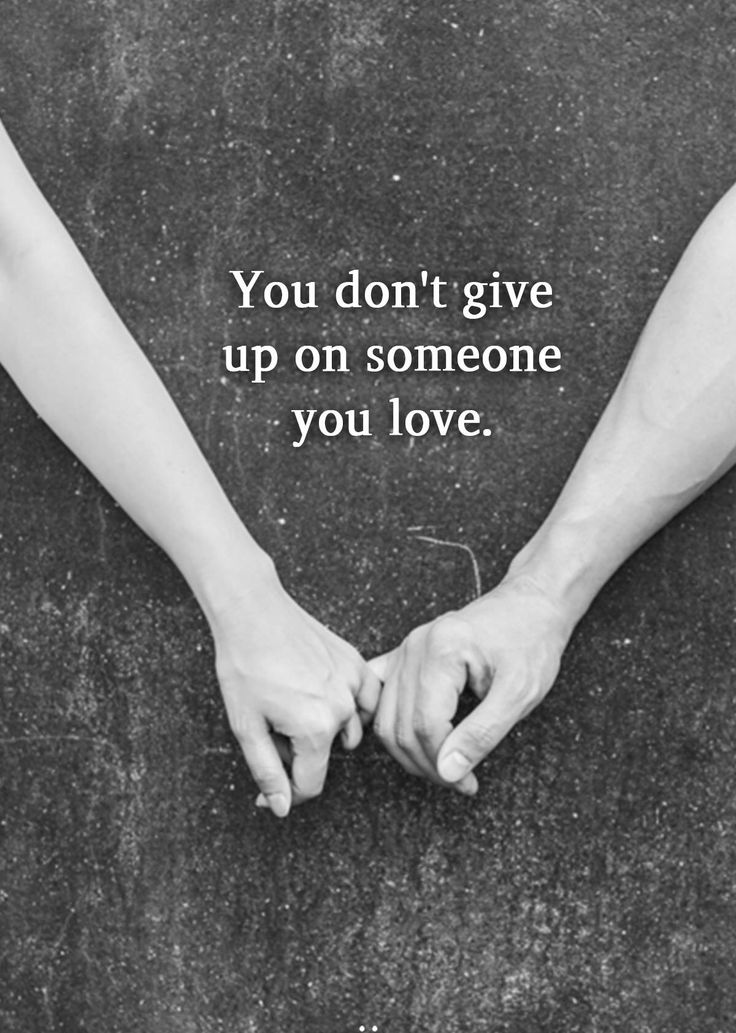 If you do these things, your love bond will improve exponentially.
If you do these things, your love bond will improve exponentially.
2. Moderate Your Expectations. Try not to expect too much of or from your partner. High expectations fuel controlling actions and lead to disappointment and resentment by both parties. For example, don’t expect him (or her )to be more affectionate or say “loving” things when he or she is uncomfortable doing so. Similarly, do not expect too much of yourself. When you do, you will likely press to hard to make things “better” and that usually results in unhealthly enabling actions. To reduce love and relationship expectations, it is helpful to ask yourself whether your perceived need or desire is that important in the overall scheme of things. Most of the time it is not.
3. Address Your Love Fears. Fear is the primary catalyst of controlling conduct—and no less so in intimate relationships. It may be fear of not finding (or keeping) someone, not being attractive or “good” enough—or the fear of being alone. Not only is the “real” person covered by this blanket of fear and thus not seen for whom he or she is, but it also induces assertive controlling actions such as pressuring and manipulating, as well as passive ones such as withdrawal and withholding love.
Not only is the “real” person covered by this blanket of fear and thus not seen for whom he or she is, but it also induces assertive controlling actions such as pressuring and manipulating, as well as passive ones such as withdrawal and withholding love.
It is thus important that you try to defuse your love fears as much and as soon as you can. In simple terms, this means you need to first identify and be clear about your fears, and then address and process them. For short, I call this process “face and embrace”. For instance, if you constantly get upset (and snippy) at your husband’s (or wife’s) constantly running around until he’s exhausted, examine the reason why. Is it your fear that he will be mean and irritable when he’s tired? If so, then share those concerns with him. If he is not responsive to your concerns, then detach from him at such times by physically removing yourself, even if that means getting out of the house for a while. In other words, focus on taking care of your own needs.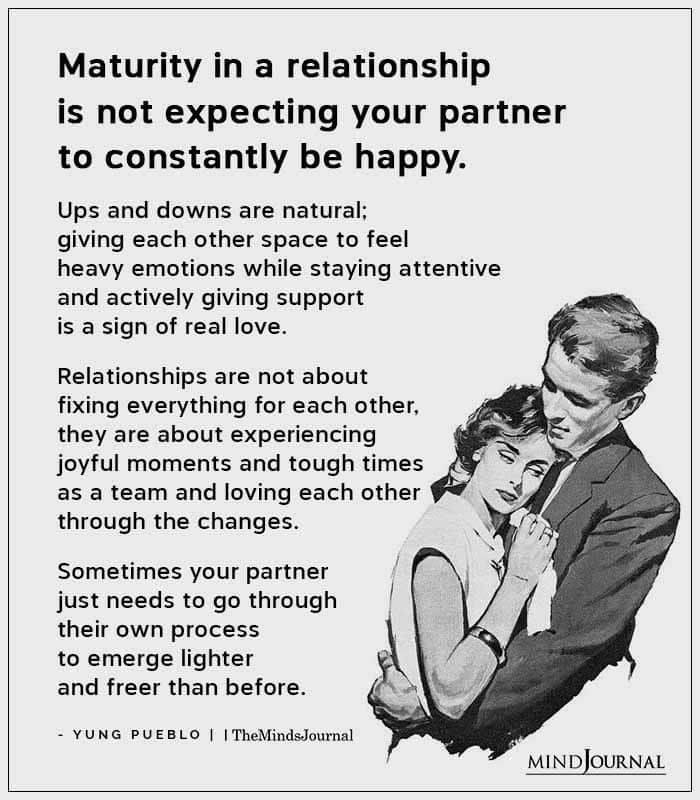 Once you realize that you have “options”, your fears will quickly diminish.
Once you realize that you have “options”, your fears will quickly diminish.
Practicing these “de-control” tools will free the love currents in your life. They are not easy, to be sure, but you will find that even a little progress will stimulate the romantic flow!
Tags: letting go of control, love control
Relinquishing control: old_evo - LiveJournal
http://evo-lutio.livejournal.com/25253.html
September 6th, 2013
one popular female illusion, especially fashionable among the so-called emancipated and "successfully treated" women.
Unfortunately, it is no secret that "successful therapy" is often called not the solution of internal problems, but the mitigation of the conflict by acquiring new defense mechanisms to replace the old ones that cracked during operation. nine0007
The illusion in question, despite the various formulations, boils down to one thing: the relinquishment of control in the relationship. Not to abandoning relationships that cannot be controlled, but to agreeing to relationships without control. The illusory nature of such a position lies in the fact that a woman begins to believe that, firstly, control is impossible and unacceptable, and secondly, that without any control, relationships can develop in her favor if she meets the right man and if she becomes an independent woman (new trend - "accumulates enough resources")
The illusory nature of such a position lies in the fact that a woman begins to believe that, firstly, control is impossible and unacceptable, and secondly, that without any control, relationships can develop in her favor if she meets the right man and if she becomes an independent woman (new trend - "accumulates enough resources")
And although I certainly believe that the accumulation of resources solves most problems, resources cannot be accumulated while being in a de facto relationship from below, that is, without having influence on the partner in them. This is the most energy-losing relationship imaginable. In this case, all talk about the accumulation of resources turns into an empty phrase, a sedative to reduce anxiety. Anxiety is not always worth reducing. Sometimes anxiety is a healthy danger signal.
If a person is in a situation over which he has no control, anxiety is inevitable, natural and useful. It is dangerous to knock off healthy mechanisms, replacing them with illusions.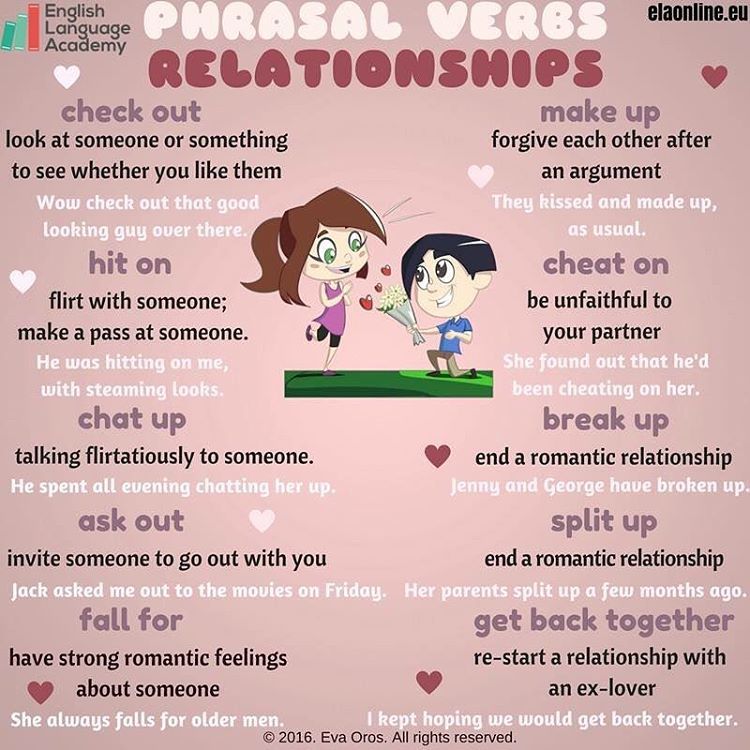 Although a person must understand that he cannot take complete control over situations, as long as factors beyond his control are involved in the situation, he must control all his investments and everything that he receives in return. When a woman decides that since it is impossible to have 100% power over a partner, she must give up control altogether, but she does not give up the relationship, she gives control to her partner. It is as if she deposited money into an account in some bank, refusing guarantee papers on the grounds that this does not give a 100% guarantee. If a man does not believe in bank guarantors, he does not need to enter into a relationship with him, if a woman does not believe in control in a relationship, she does not need to have a relationship. nine0007
Although a person must understand that he cannot take complete control over situations, as long as factors beyond his control are involved in the situation, he must control all his investments and everything that he receives in return. When a woman decides that since it is impossible to have 100% power over a partner, she must give up control altogether, but she does not give up the relationship, she gives control to her partner. It is as if she deposited money into an account in some bank, refusing guarantee papers on the grounds that this does not give a 100% guarantee. If a man does not believe in bank guarantors, he does not need to enter into a relationship with him, if a woman does not believe in control in a relationship, she does not need to have a relationship. nine0007
The golden mean between the two extremes (the need for absolute control and the denial of control in general) is where a woman has real levers of influence in relationships, uses them and is convinced of their functionality, and having lost these levers, leaves the relationship, which has become too risky and does not doubt his right to power (at least 50 to 50, although more is desirable to compensate for genders). It is the presence of functional levers that reduces her anxiety to the point where she no longer needs sedative illusions that completely distort her picture of the world. There can be no complete control, so it is impossible to get rid of anxiety 100%, but its small dose is useful for maintaining criticality, mild alertness and clarity of perception. If there are no levers of influence at all and the woman has given up the healthy need to have them, her anxiety is so great that she is forced to go deep into illusions and lose her clarity of perception. nine0007
It is the presence of functional levers that reduces her anxiety to the point where she no longer needs sedative illusions that completely distort her picture of the world. There can be no complete control, so it is impossible to get rid of anxiety 100%, but its small dose is useful for maintaining criticality, mild alertness and clarity of perception. If there are no levers of influence at all and the woman has given up the healthy need to have them, her anxiety is so great that she is forced to go deep into illusions and lose her clarity of perception. nine0007
A woman has sufficient control for a clear perception only in such relationships, where a man ambiguously confirms her value and his great interest, which means his readiness to fulfill the woman’s conditions, to compromise and invest a lot. Many women are so afraid to face reality and see that their significance for a man is small, to discover that a man is not going to fulfill any conditions and is ready to be around only on conditions that are convenient for him, that they prefer the illusion of "green grapes".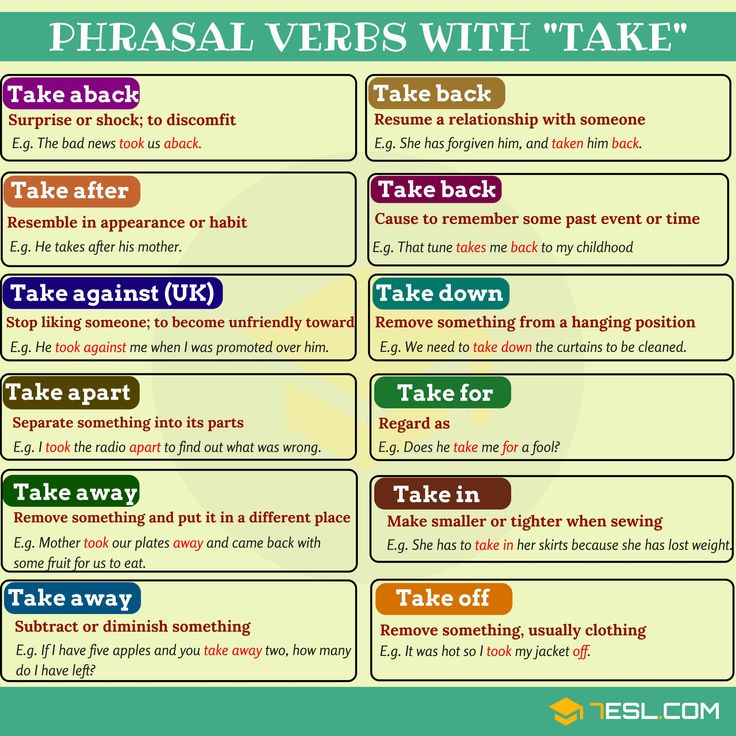 Unlike the fabled fox, however, women do not leave this vineyard, but continue to fertilize it, water it, take care of it, not only not hoping for a harvest, but also suggesting to themselves that they do not need a harvest, and gardening is their hobby. nine0007
Unlike the fabled fox, however, women do not leave this vineyard, but continue to fertilize it, water it, take care of it, not only not hoping for a harvest, but also suggesting to themselves that they do not need a harvest, and gardening is their hobby. nine0007
The end point of slavery is when the slave not only does not want to escape, not only does not try to steal anything, not only does not think about compensation, but believes that slavery is his own need.
A person needs control over everything he invests himself in (I already wrote about this in the free-love-abuse post). If there is no control at all, not at all, it is impossible to invest. The less control, the less it costs to invest effort, and vice versa. This is what therapists are trying to say when they urge women to stop trying to control something over which they have no real power. However, many forget to clarify that when you stop controlling, you must definitely close yourself from influence, that is, distance yourself, and not swing open towards.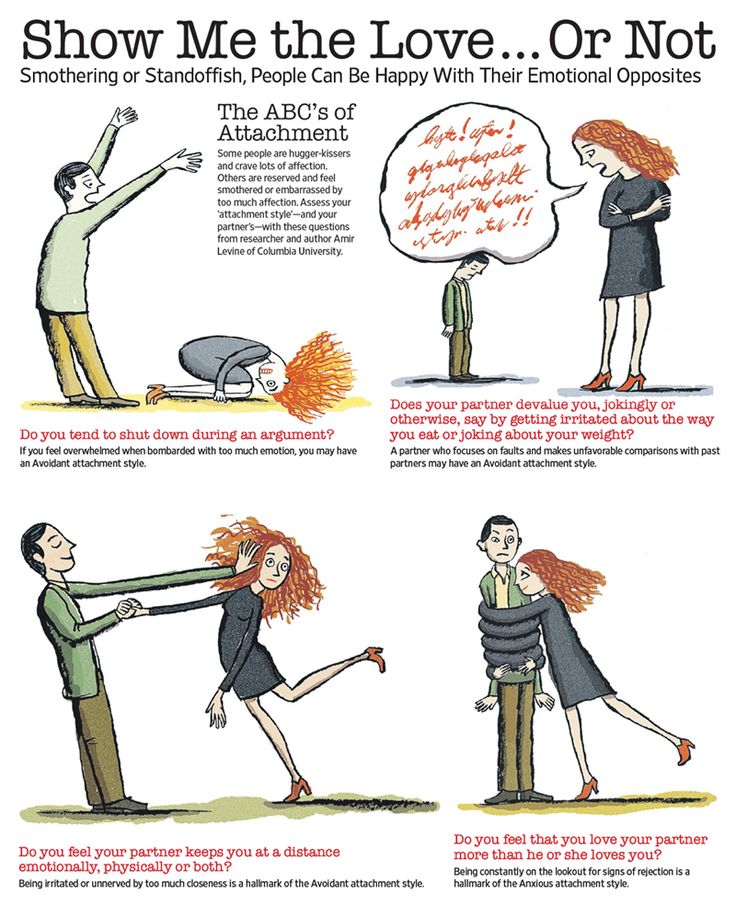 You can swing open to meet (that is, enter into close relationships) only to those over whom and over whom you have sufficient power, that is, you are able to influence and receive confirmation of your influence. nine0003
You can swing open to meet (that is, enter into close relationships) only to those over whom and over whom you have sufficient power, that is, you are able to influence and receive confirmation of your influence. nine0003
wavegiude
I'll tell myself what scares me about control. If we consider control over the situation in the sense of calculating investments and profits and monitoring the development of the situation, then here I am very calm and good. And even make sure that the partner invests no less than me and that I do not invest much.
But when I begin to imagine control over male feelings, i.e. fantasize that if I do this and that, then he will love me more - then I get wildly scared, because I understand that I can’t make him love me more. I can simply respond to his dislike by leaving, for example. nine0003
evo_lutio
Such a question. Can a man gain control over women's feelings? And How?
wavegiude
Can get my feelings if he behaves well.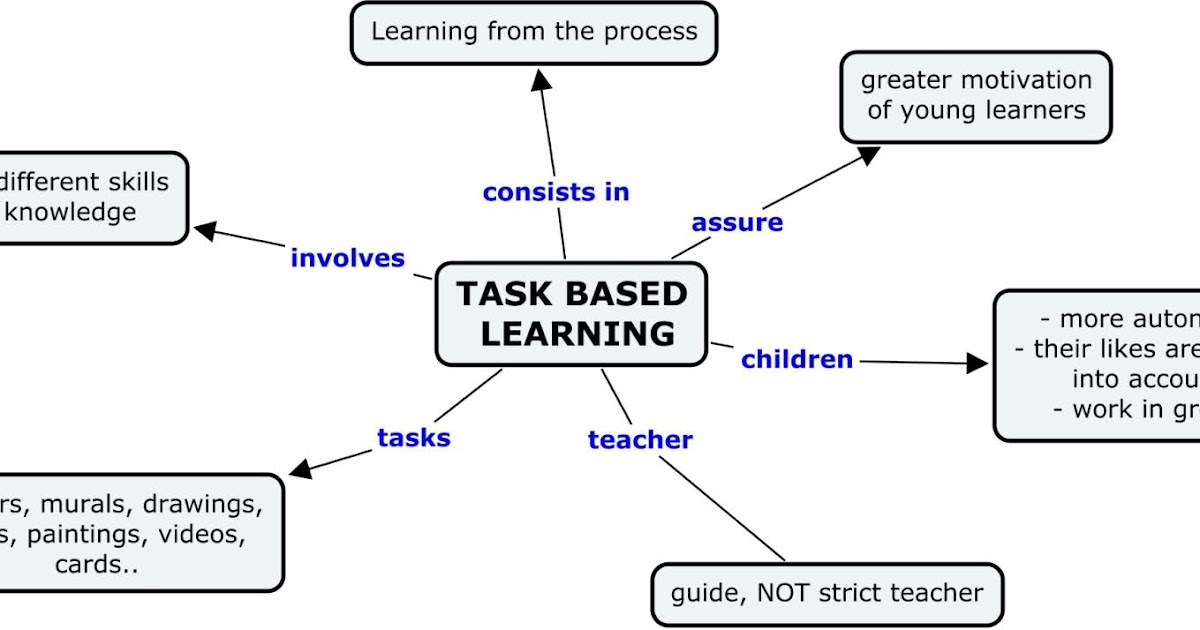
evo_lutio
I wonder where this fear comes from?
And who inspired the idea "if you want to influence your partner's feelings, then you are addicted!" Although this is just a sign of a dominant partner - to want to influence and really influence. And wanting to influence, but not influence, is a sign of a person who wants to have power, but cannot. So it's not the worst case. The worst thing is when you don't want to influence at all. nine0007 As long as a person depends on you emotionally, you can not only influence his feelings, you can do it easily and casually. To upset, to make worry, to worry, to please, to make surprised, and so on. And as soon as this influence is lost, this is a signal that the relationship must end. I'm not about pulling strings. They pull either sadists, or those who have already begun to lose influence and will check. When there is influence, women receive the necessary reactions in the process of interaction in sufficient quantities. Feedback is continuous. nine0007 And to make someone who does not need a woman fall in love is a difficult task. Not impossible, by the way, but it requires a lot of tools that most women don't have. Returning the love of someone who loved, but fell out of love, is easier, but also difficult. Although the complexity again depends on the availability of tools.
Feedback is continuous. nine0007 And to make someone who does not need a woman fall in love is a difficult task. Not impossible, by the way, but it requires a lot of tools that most women don't have. Returning the love of someone who loved, but fell out of love, is easier, but also difficult. Although the complexity again depends on the availability of tools.
wavegiude
I think this fear comes from the fact that then I have to admit that I did not receive love from men because I did not behave correctly.
Although if you think about it, there is nothing terrible about it. Well, I couldn't, but then I can. nine0007 you correctly noted about this continuous connection, when there is influence, then you get all these reactions in between times. And of course, in a situation of romantic interest for a man, these reactions are easy to get.
but the word control is frightening, because the word control is followed by the word responsibility. And then I get responsible for his reactions. And in order to withstand it, you really need to stand in a position of strength.
And in order to withstand it, you really need to stand in a position of strength.
evo_lutio
I'm wondering why the word control takes on a submissive meaning in the interpretation of women. Although everything acquires a submissive meaning, even the master = master, and the mistress = housewife, that is, a servant. nine0007 In fact, if the control belongs to you, you are not responsible for the reactions of the man, but you can expect the reactions you need and the expectations will most likely be justified. If not, then you have little control and this is a reason to consider a man an insufficiently suitable partner, unable to give you the desired power in a relationship.
That is, the position is not "I must earn influence", but "I agree to be together only on the condition that influence will be provided to me."
Let's say I agree to a job, and suddenly it turns out that my powers are limited, I have less leverage than I originally expected. I refuse this kind of work. I don’t think: well, how is it, then I didn’t make an impression, I didn’t deserve it. No. I shouldn't deserve anything. Influence is not a prize, it is a condition of work. Without influence, I am not interested in working. So here too. A condition, not something that a woman should receive by overcoming the resistance of a man. Something else was missing. nine0003
I refuse this kind of work. I don’t think: well, how is it, then I didn’t make an impression, I didn’t deserve it. No. I shouldn't deserve anything. Influence is not a prize, it is a condition of work. Without influence, I am not interested in working. So here too. A condition, not something that a woman should receive by overcoming the resistance of a man. Something else was missing. nine0003
wavegiude
That's it, I got it. Thank you very much for your patient explanation.
in general, this is how I imagine the relationship, but yes. call it the word control I'm afraid.
i.e. I know for sure that if I give birth to a child, then only on the conditions of my full influence on everything - money, time, strength, etc. But I didn't think it was control.
once again many thanks for placing the right accents.
I thought about your words. Indeed, when I hear - to control the relationship, I imagine - I need to somehow manage to control the relationship so that he does not guess that I control them, but so that it turns out to be successful. And not - "I said at 8 pm to be at home and not look around." Despite the fact that I can say (and I say) - you will give all your salary to me and then we will decide how to spend it. But admitting that I want to control the relationship is scary. nine0007 And the right thought - if a man does not allow you to control his attitude, then this is not the right man. Living in uncertainty and anxiety is very unprofitable.
And not - "I said at 8 pm to be at home and not look around." Despite the fact that I can say (and I say) - you will give all your salary to me and then we will decide how to spend it. But admitting that I want to control the relationship is scary. nine0007 And the right thought - if a man does not allow you to control his attitude, then this is not the right man. Living in uncertainty and anxiety is very unprofitable.
evo_lutio
Yes, and how beneficial it is to be a man, you can say "to be at home at 8 and not look around" and at the same time look like a passionate macho, so powerful and beautiful. And a woman, having said this, will feel like a mother, jealous and not self-confident.
Everything is done to make control unprofitable for a woman, undesirable. And thus make her live in instability and confusion. Trying to secretly manipulate, blushing with shame, instead of declaring the right to control and feel dignity from this, and not vice versa.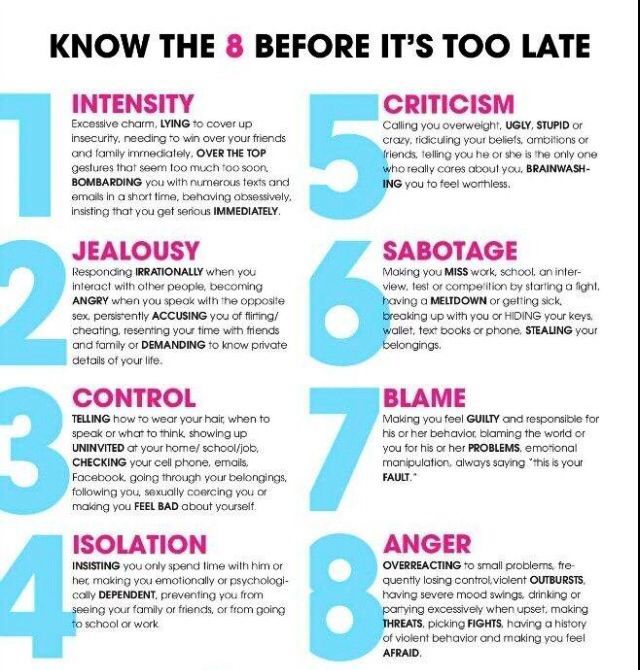 nine0007 "If you are near, if you enter my intimate space, I must be sure of you, and if I doubt, I will have to part with you, no matter how sad" - it should be so. Round trip. And women are told “and you doubt it, because you are not sure of yourself, what does it have to do with me, you can trust me” and they don’t give any levers of control, except for verbal promises and an angry “don’t you believe me ??” She doesn't have to trust anyone. Nobody at all. If she's not a simpleton.
nine0007 "If you are near, if you enter my intimate space, I must be sure of you, and if I doubt, I will have to part with you, no matter how sad" - it should be so. Round trip. And women are told “and you doubt it, because you are not sure of yourself, what does it have to do with me, you can trust me” and they don’t give any levers of control, except for verbal promises and an angry “don’t you believe me ??” She doesn't have to trust anyone. Nobody at all. If she's not a simpleton.
wavegiude
Oh, about "you don't trust me", my favorite song in general)
I usually answer - I trust you, I let you sleep next to me at night and I'm not afraid that you will suffocate me. But I don't trust you. And I never will.
amatey
about tools - what exactly are they? Your vision is the most accurate interaction scheme, thank you.
evo_lutio
Methods, conditions, resources. Circumstances and ability to act in them. nine0003
nine0003
scuf_ro
This is a rationalization of cognitive dissonance, isn't it?
evo_lutio
Cognitive dissonance avoidance, yes. Like most psychic defenses.
mara_jiteyskaya
all this is understood by the mind. but how to change this habit?
evo_lutio
Which habit?
mara_jiteyskaya
transfer of control to a partner
evo_lutio
Oh, yes. The gender tale suggests that love is when a woman is completely relaxed and her eyes are blindfolded.
Many women even have a sexual fetish. Since adrenaline in this state goes off scale and the brain has to go into trance mode.
tsarinka
On point! Not controlling, giving complete freedom, freedom is not given to oneself, but to a man who can even declare the same degree of freedom for a woman, only she does not need freedom from a man, she needs HE. Therefore, a man is happy to try and takes his freedom entirely, and a woman is glad to give her freedom to him, to sing a song with a dance to the tambourine about their free relationship based on complete trust and love. He has no doubts about her trust and love, and the man continues to control his freedom and lack of freedom in relationships, hence fishing, business trips and work until midnight and a housewife with full care for children, no one cares about her joint children. liberated, so she believes that the burden of labor in raising children is her personal choice. And the fact that the husband also wanted children once, before they appeared, justifies his minimal participation in difficult and energy-consuming moments and daily care for them .. And so on: from maintaining his wardrobe to receiving his guests. nine0003
Therefore, a man is happy to try and takes his freedom entirely, and a woman is glad to give her freedom to him, to sing a song with a dance to the tambourine about their free relationship based on complete trust and love. He has no doubts about her trust and love, and the man continues to control his freedom and lack of freedom in relationships, hence fishing, business trips and work until midnight and a housewife with full care for children, no one cares about her joint children. liberated, so she believes that the burden of labor in raising children is her personal choice. And the fact that the husband also wanted children once, before they appeared, justifies his minimal participation in difficult and energy-consuming moments and daily care for them .. And so on: from maintaining his wardrobe to receiving his guests. nine0003
majasuave
I think I got it! Many thanks!
I wonder how this relates to how people (judging by the program Dog Whisperer - even the military and Lakers coach Phil Jackson) pamper dogs before the appearance of aggression and still continue to either beg or ignore? I think this is the imposition of "humanization" of the dog and ignoring its needs.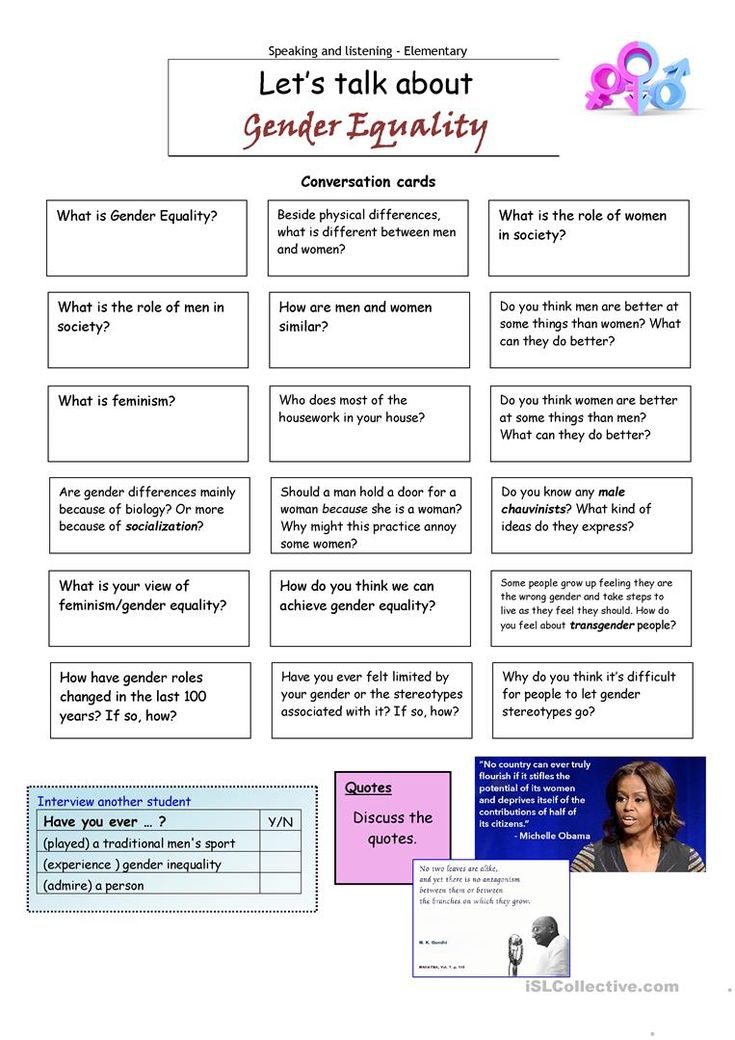 If a person is financially and physically responsible for a dog, then it seems that he is also responsible for establishing trust and respect so that the dog does not bite anyone and does not get under a car because he does not respond to a nickname or drags him by the leash? nine0007 My interest in training began with the fact that abandoned dogs in a shelter obeyed the volunteers more or less only one at a time, and in the group they began to fight, to find out who was the leader or the leader. There were not enough hands to walk and play each separately. in the end, we learned how to calm down without screaming and in a whisper so that we walked 4-6 calmly,
If a person is financially and physically responsible for a dog, then it seems that he is also responsible for establishing trust and respect so that the dog does not bite anyone and does not get under a car because he does not respond to a nickname or drags him by the leash? nine0007 My interest in training began with the fact that abandoned dogs in a shelter obeyed the volunteers more or less only one at a time, and in the group they began to fight, to find out who was the leader or the leader. There were not enough hands to walk and play each separately. in the end, we learned how to calm down without screaming and in a whisper so that we walked 4-6 calmly,
although there were volunteers who flatly turned out to be in the lead, they considered it cruelty :((
One thing surprised me - the size and gender of the leader's dog does not play a role, only the character - At one time, our leader was a female Chihuahua, she drove two young German shepherds and a pit bull.There is a similar transmission there - one Chihuahua is the leader of a pack of 5 pit bulls.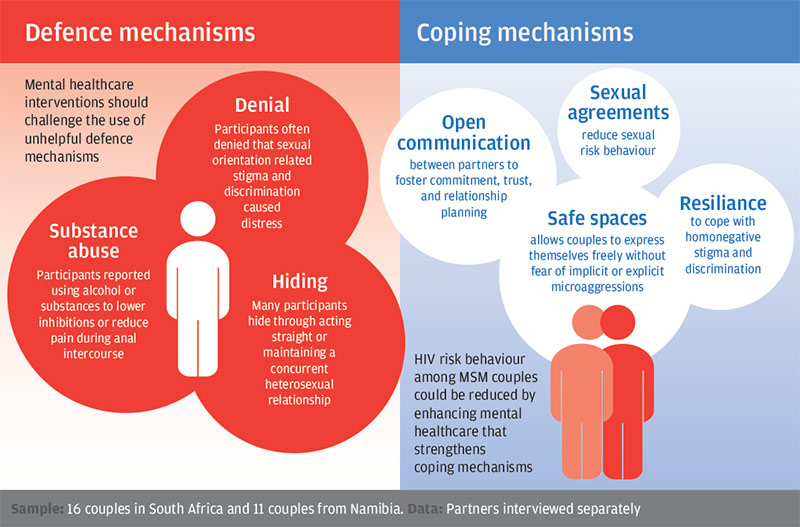 0007 The episode is called "Chihuahuas from Hell" http://channel.nationalgeographic.com/wild/dog-whisperer/galleries/episode-chihuahuas-from-hell/
0007 The episode is called "Chihuahuas from Hell" http://channel.nationalgeographic.com/wild/dog-whisperer/galleries/episode-chihuahuas-from-hell/
Here are links to other episodes of this show about how people "humanize" dogs (Also, dog training in a women's prison reduces re-incarceration) http://majasuave.livejournal.com/6790.html
evo_lutio
I don't know how it relates.
But apparently the same as the law of investment balance = power
The more investments, the more power should be. Ignoring this principle leads to various troubles.
not_that_owl
My anxiety did not let me completely give up control, but I could never express my need for sincere words, at least for myself.
And I understood why. You have control = you bear your part of the responsibility. It seems to be nothing to worry about. But then my consciousness takes a giant logical leap and comes to "you bear your part of the responsibility = you are to blame for all your troubles, you have no right to complain, no one will come to your aid if something happens, because you voluntarily participated in this ". And this option, of course, scares me, so I have to play around and explain to myself that I don’t want control for myself, but for the family good, for example, haha. nine0007 In essence, this is similar to (and perhaps is) assigned to "self-damned". Oh, and I thought I had already dealt with this.
And this option, of course, scares me, so I have to play around and explain to myself that I don’t want control for myself, but for the family good, for example, haha. nine0007 In essence, this is similar to (and perhaps is) assigned to "self-damned". Oh, and I thought I had already dealt with this.
evo_lutio
You have control, you have a piece)
After all, they inspired women that without control, they do not have responsibility. And then they unloaded all the responsibility on them, they go and drive.
momoko_chan
I remember when I refused, I think I already wrote this, from searching for "someone older who will help and protect in everything", and decided that hello, I am now older myself, only on an equal footing or the youngest will join me as a couple - I must have been terrified for a month. how is it, but how do they all, these men, live like that? there is no kind magician who will arrive by helicopter, they rely only on their own strength! oh horror, horror, and here is such a cruel world, and now I'm all on my own, I can't handle it.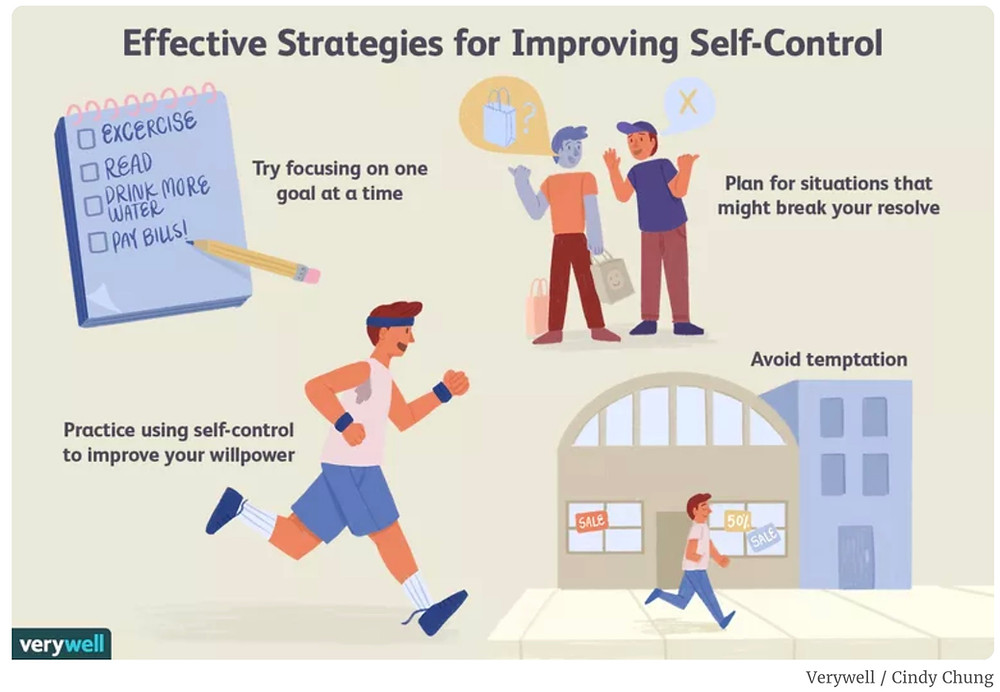 nine0007 although there is no difference, before that I was all on my own, and the wizards only brought chamomile on the day of menstruation. but with the illusion that someone is kind, if anything, if I'm good, he will do all the work on my mistakes for me - for some reason it was calmer. the responsibility is terrible, and society has told me a thousand times that I am too infantile and weak for it. and everything else - so it’s not responsibility, there the master is watching from above and taking care of it. x)
nine0007 although there is no difference, before that I was all on my own, and the wizards only brought chamomile on the day of menstruation. but with the illusion that someone is kind, if anything, if I'm good, he will do all the work on my mistakes for me - for some reason it was calmer. the responsibility is terrible, and society has told me a thousand times that I am too infantile and weak for it. and everything else - so it’s not responsibility, there the master is watching from above and taking care of it. x)
not_that_owl
Yes, there is no difference, but at first it is scary to put the real state of affairs into words. nine0007 I naively thought that I had already passed this milestone, but now, you see, I was again caught up, from where they did not expect.
momoko_chan
I just can't figure out why it's so scary. because outside suddenly matrix? Oh, well, she's been there all her life. but running with all towards the early death of into a brighter future is somehow calmer.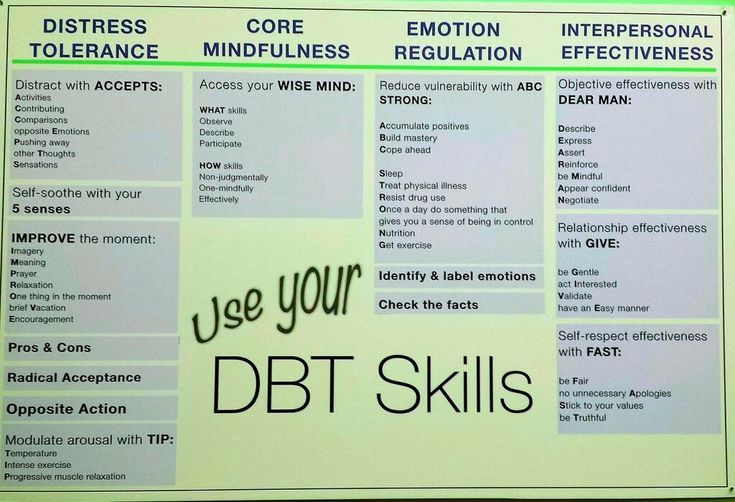
not_that_owl
Personally, it seems to me that this is like the last bastion of protection. That is, something terrible can happen to me, but at least I know that it’s not my fault. And if I know that I am guilty, then I am a bad girl who got what she deserved, and should not exist at all. But “non-existence” is personally my worst bogey (unbelievable but true - at one time I was seriously saddened by the thought that it would be more economically profitable for my parents to kill me and raise a new “normal” child than to try to normalize what there is), other people may have other main scarecrows, I think. nine0007 It took me a really long time to realize that even if I'm bad, immoral, inconsistent with the requirements of society (whatever!), no one has the right to do all sorts of dull things to me. If I break the law, you can sue me, if I am unpleasant in communication, you can stop communicating with me. Everything else is clearly superfluous and I have every right to defend myself if someone allows himself this "superfluous" in relation to me.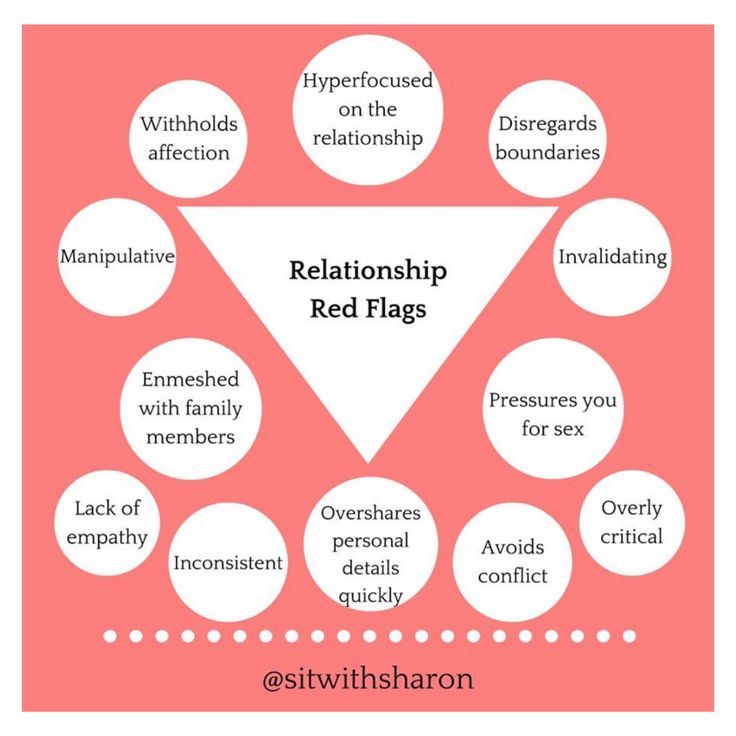
momoko_chan
Well, the fact that I don't have the right to exist is also my cant. moreover, it regularly climbs out for me so that I don’t even realize it, it’s just that for some reason I feel bad and I don’t want to buy myself an apple. "didn't deserve it." nine0007 and I also regularly think about a normal child. if I were a pretty office plankton, and even give birth to a couple of children for everyone's happiness, but get married - and not all THIS - it would be good for everyone around.
I am now very afraid of depriving me of the right to be as I am at the legislative level. this is also, apparently, the last bastion, others definitely do not work, in the sense, just public opinion, censure, guilt, fear and shame.
sales_plitka
I think that when they talk about giving up control, they mean giving up direct control and its manifestations, talking "where were you, why did you come so late", etc., manipulations so that the partner does what you want need to. And this is a completely viable position, to allow yourself and your partner to choose what she / he needs. You, it seems to me, are talking about the absolute renunciation of control, which is practically impossible, because. two living beings, being in interaction, influence each other on the physical, mental and other levels. nine0003
And this is a completely viable position, to allow yourself and your partner to choose what she / he needs. You, it seems to me, are talking about the absolute renunciation of control, which is practically impossible, because. two living beings, being in interaction, influence each other on the physical, mental and other levels. nine0003
evo_lutio
Talking "where were you, why did you come so late" is completely normal, of course, and when a woman thinks she has no right to it, things are bad with her.
It just seems to you that I'm talking about the rejection of absolute control, I'm talking about the fact that the level of allowable control in the minds of women is very much underestimated and they need to be aware of their right to control in relationships, since they put themselves into it.
I would rather say that absolute control is impossible and unnecessary, but its measure should be determined by investments. A lot of investments - a lot of control, etc.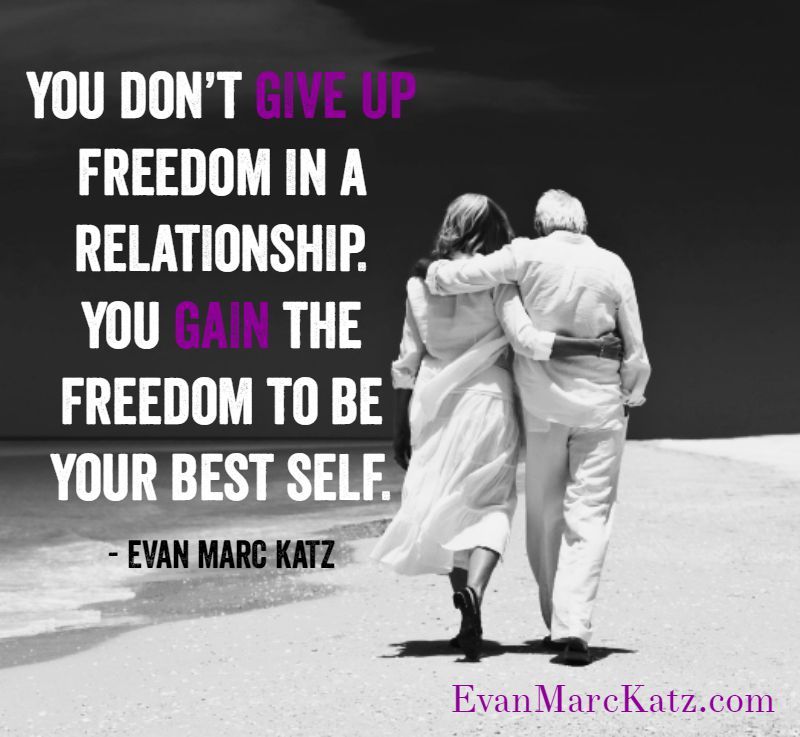 nine0003
nine0003
sales_plitka
Excessive control is one of the signs of codependence in a relationship. It seems to me that it is impossible to be separated and controlling at the same time
evo_lutio
You cannot be separated in a relationship in principle.
This is a fairy tale for stupid women.
well
I tasted this state. Exactly. And in response from the abuser I often heard the phrase "you want to control everything" (although I just wanted to be sure of what was happening). Broke, too, thanks to the "control". I realized that I could not control the situation - it was suspended in obscurity by the abuser as if on purpose. nine0007 I sent him to hell and calmed down - I got control over my life and my resources.
*I remember your free-of-abuse comments, you didn't write in your journal then, but the comments were very relevant. My post was "the story of one abuser", at that time a 3-year-old.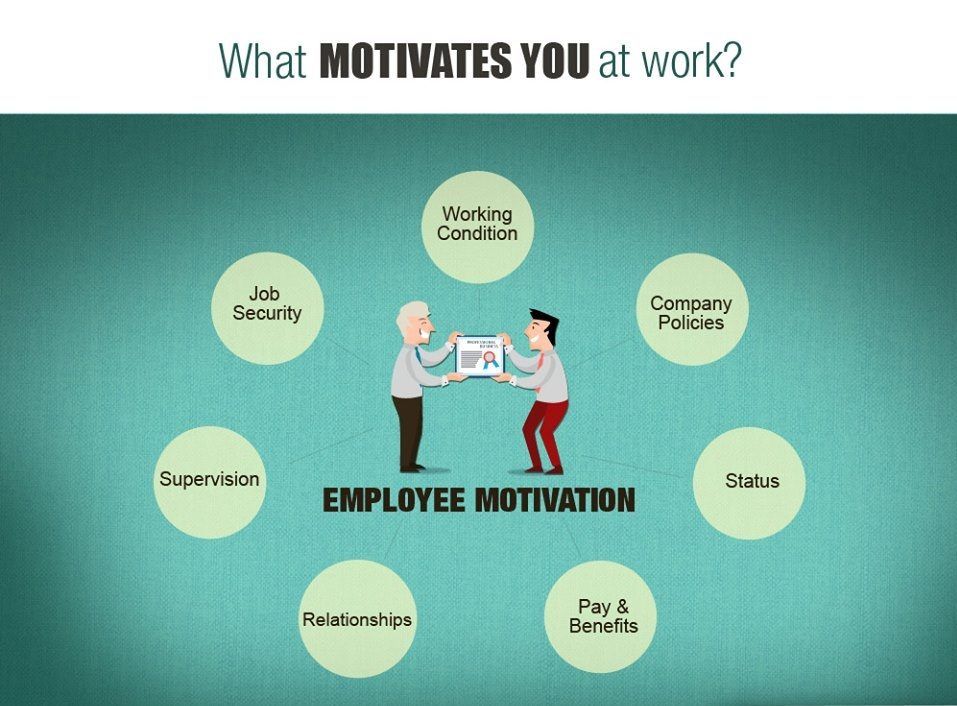
Thank you for working on the topic.
leadtheway
I recognize myself. The last few years (after the divorce) no control in the relationship.
I refused because it's easier for me. Instead of worrying about where, when, why, it’s better, in general, not to know and not to be driven - according to the rule "the less you know - you sleep better." If you need a man nearby, then there is nothing more to choose from - either an open relationship, or ending before it starts. Because, having not received an answer to a question or having received one that is incompatible with the concept of one's own pride, I cannot continue, the illusions of his "special attitude" are crumbling. nine0007 I don’t ask anything, I never call or write myself, I proudly emphasize this, explaining that if he wants to, he will call, if he doesn’t call, then he doesn’t really want to and there is absolutely no need for me to take the initiative to feel it. He will feel that he is missing me - he will offer something himself, the man. If he doesn’t feel it, it’s also not very scary, there are a lot of men, I have enough.
If he doesn’t feel it, it’s also not very scary, there are a lot of men, I have enough.
Now I understand that my refusal to control and questions is not due to indifference, but to hopelessness, inability to control, the desire to seem independent. I thought about it ... Fortunately, I don’t have any romance anymore and I don’t want to, only friends of varying degrees of intimacy. I wonder if it is worth changing the usual tactics? Call first and offer (in an hour :) ) to meet leads up or down? nine0003
evo_lutio
If you change tactics without having real power on your partner (which consists in his dependence and his fear of distance), then of course you will go down. So you at least portray independence and indifference, and if you start calling yourself, then you yourself will harass.
In general, this is a separate interesting topic, how the same things can mean completely different things. A semi-indifferent princess who is begged to come on a date and she condescends, and a timid lover who was whistled and came running because she sat and waited, not daring to hope.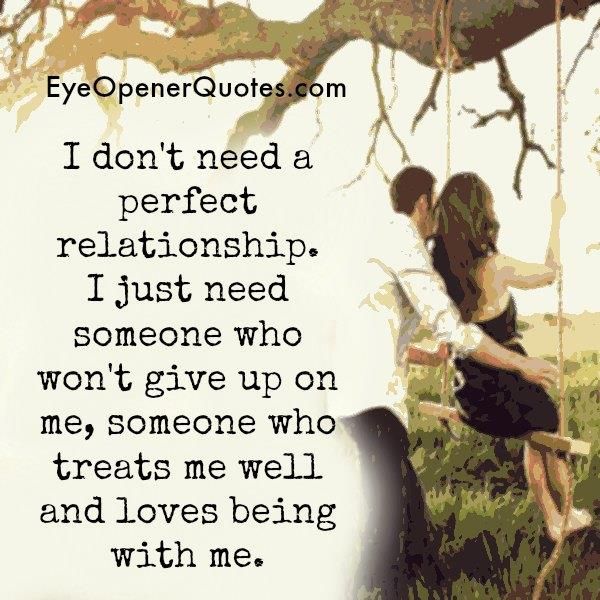 Both look like the initiative of a man and the passivity of a woman, but the essence is very different. Or the women's initiative: again, the princess, who calls herself and says where and when it suits her, and the poor thing, who calls and asks for a meeting urgently, because there is no strength to endure. nine0007 Simple manuals do not work because, depending on the level of real power in a relationship, the same thing can have the exact opposite effect.
Both look like the initiative of a man and the passivity of a woman, but the essence is very different. Or the women's initiative: again, the princess, who calls herself and says where and when it suits her, and the poor thing, who calls and asks for a meeting urgently, because there is no strength to endure. nine0007 Simple manuals do not work because, depending on the level of real power in a relationship, the same thing can have the exact opposite effect.
8 signs that will help you define the boundary between care and control in a relationship / Bright Side
There is a fine line between sincere care and total control, which can be so blurred that it is almost impossible to understand the true intentions of a partner. But if your partner's supposedly caring behavior makes you feel guilty, fearful, or inferior, be careful: you may be being manipulated. nine0003
ADME is always ready to help. That's why we delved into this difficult topic and found out when caring really hides the desire to dominate.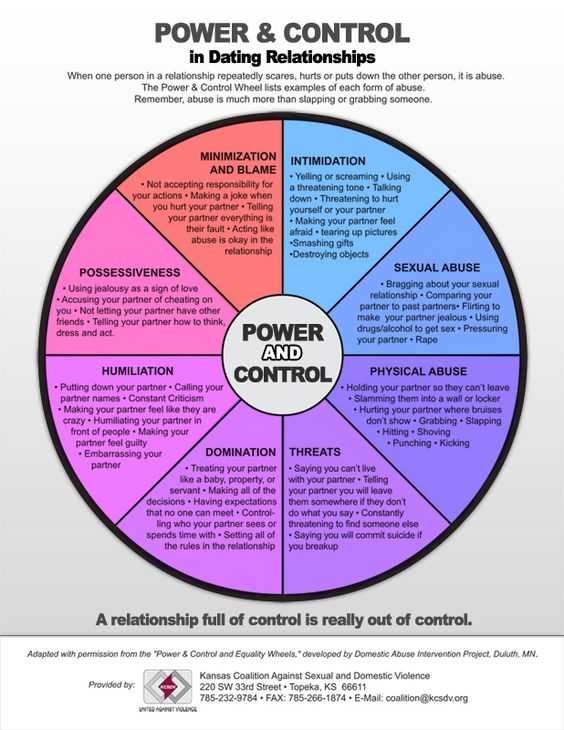
1. Only one of the parties is ready to make concessions
Those who are ready to meet each other halfway in order to resolve the dispute come to a compromise. If only one person satisfies the requirements of another to the detriment of his own needs and feelings, this relationship is unlikely to last long. A truly caring partner tries to do everything possible to find a common language with a significant other, while a controlling partner usually ensures that everything is the way he wants. And your feelings and desires are not taken into account. nine0003
2. Established agreements are observed only unilaterally
Each couple has its own rules and regulations. When one of the partners begins to neglect them, continuing to demand their fulfillment from the other half, there is no trace of a caring attitude.
3. Talking to a dominant partner is like walking through a minefield
A caring environment encourages interlocutors to openly discuss their needs and feelings.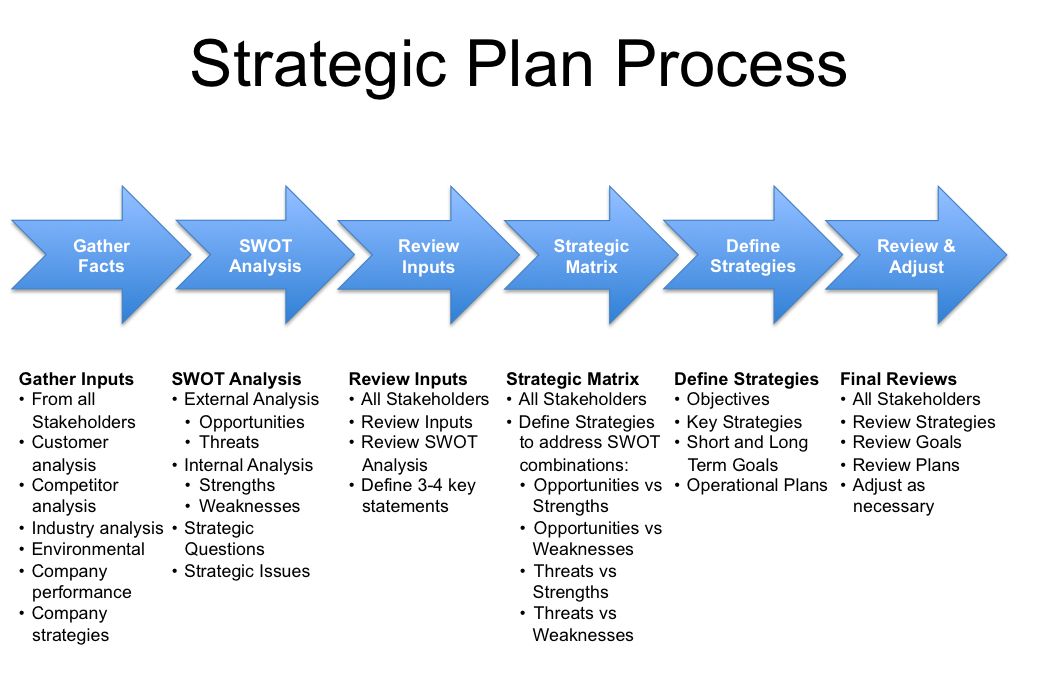 But if you're afraid to express yourself because you might be rebuked instead of engaging in dialogue, be careful: you're most likely at the mercy of a controlling partner. Such a person admits only that he is right, does not apologize and does not take responsibility for his actions. nine0003
But if you're afraid to express yourself because you might be rebuked instead of engaging in dialogue, be careful: you're most likely at the mercy of a controlling partner. Such a person admits only that he is right, does not apologize and does not take responsibility for his actions. nine0003
4. You are criticized for every little thing and made to think that it is supposedly for your own good
A complaint made against you may not even sound like criticism. At first, you may get the impression that your partner cares about you and is genuinely trying to help you. Only now, if he does this constantly and for any reason, this is a clear sign of excessive control in the relationship. Speaking negatively about your decisions, actions, relationships with family and friends, or, for example, clothes, this person is not trying to improve your life. In fact, it undermines your confidence in yourself and your ability to make decisions and act independently. nine0003
5.
 A partner violates your personal boundaries
A partner violates your personal boundaries There is nothing strange in the fact that the second half asks you to share something intimate with her. You can always agree or refuse. But a person who demands to tell what you would prefer to keep secret is unlikely to care about your feelings. Most likely, this is how he wants to learn more about you and your vulnerabilities, so that it would be even easier for him to keep you under control.
6. You are prevented from moving towards your goals in school and at work, because they allegedly do not want others to offend you
When a loved one sees that the other half has big ambitions (for example, professionally or academically) but lacks the experience and skills to realize them, they usually motivate them to work on their weaknesses. The controlling partner in such a situation does not provide the necessary support and makes you doubt yourself, hiding behind the fear that you will be disappointed if you fail.









